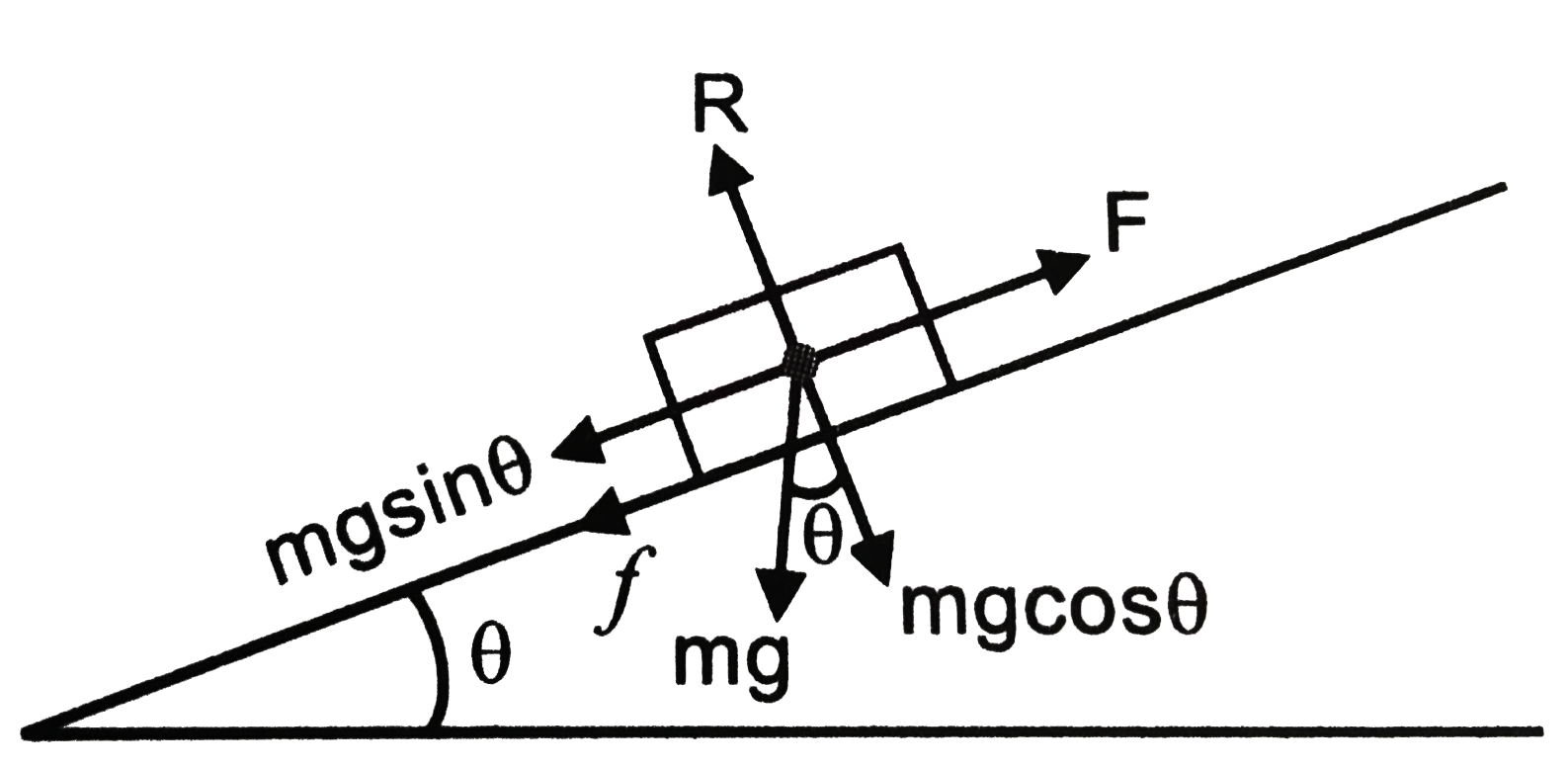A 100 metric ton engine is moving up a slope of gradient at a speed of 100 metre hour. The coefficient of friction between the engine and the rails is 0.1. If engine has an efficiency of for converting heat into work, find the amount of coal the engine has to burn in one hour. Burning of 1 kg coal yields 50000J.
Here, metric ton
Mass of coal,
Energy yielded of coal.
As is clear from figure, force applied by the engine,
Power of the engine,
As efficiency
energy used
As 50000 J energy comes from burning of 1 kg of coal.
Mass of coal to be burnt

Topper's Solved these Questions
- WORK, ENERGY AND POWERBook:PRADEEPChapter:WORK, ENERGY AND POWERExercise:Conceptual Problems
Explore 27 Videos
- WORK, ENERGY AND POWERBook:PRADEEPChapter:WORK, ENERGY AND POWERExercise:Very Short Anwer Question.
Explore 54 Videos
- WORK, ENERGY AND POWERBook:PRADEEPChapter:WORK, ENERGY AND POWERExercise:Curiosity questions
Explore 2 Videos
- THERMODYNAMICSBook:PRADEEPChapter:THERMODYNAMICSExercise:Assertion- Reason Type Questions
Explore 19 Videos
Similar Questions
A 10 metric ton truck drives up a hilly road of gradient 1 in 50 at a speed of 36kmh−1 if the conefficient of kinetic friction between the road and years is 0.2, calculate the power delivered by the engine (g=10ms−2)
View SolutionFind the force required to move a train of mass 105 kg up an incline of 1 in 50 with an acceleration of 2ms−2. Coefficient of friction between the train and rails is 0.005. Take g=102.
View Solution
Knowledge Check
A 1,00,000 kg engine is moving up a slope of gradient 5∘ at a speed of 100 m/h. The coefficient of friction between the engine and rails is 0.1. If the engine ahs an efficiency of 4% for converting heat into work, find the amount of coal the engine has to burn up in one hour ( burning of 1 kg of coal yields 50,000 J )
A9.23×104kgB9.15×103kgC8.41×104kgD8.65×103kgA engine has an efficiency of 1/3. The amount of work this engine can perform per kilocalorie of heat input is
A1400 calB700 calC700 JD1400 JA Carnot heat engine has an efficiency of 10%. If the same engine is worked backward to obtain a refrigerator, then find its coefficient of performance.
A8B9C6D5
An engine of one metric ton is going up an inclined plane of slope 1 in 2 at the rate of 36kmh−1 If the coefficient of friction is 1/√3 calculate the power of the engine in k W .
View SolutionA heat engine with a thermal efficiency of 40% does 100 J of work per cycle. How much heat (in J) is exhausted to the cold reservoir per cycle?
View SolutionAn engine of weight 6.5 metric ton is going up an inclined plane of 5 in 13 at the rate of 9km/h. If the coefficient of friction is 1120. Calculate the power of the engine. Take g=9.8m/s2
View SolutionAn engine of 100H.P draws a train of mass 100 metic ton with a velocity of 36kmh−1 Find the coefficient of friction.
View SolutionA particle of mass 0.1kg has an iniital speed of 4ms−1 at a point A on a roudh horizontal road. The coefficient of friction between the object and road is 0.15. The particle moves to a point B at a distance of 2m from A. What is the speed of particle at B ?
Take g=10ms−2
View Solution